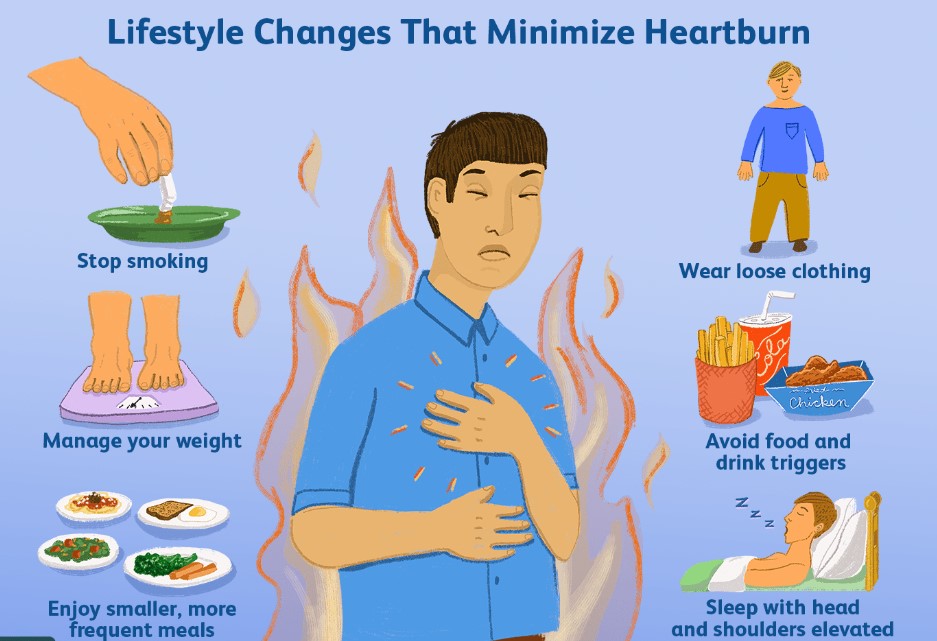BOURSESSENEGAL – Heartburn relief is a common concern for many people experiencing the uncomfortable sensation of burning in the chest. This sensation often arises after eating, leading to a quest for effective solutions. Understanding the causes of heartburn and exploring various relief options can significantly improve your quality of life. In this comprehensive guide, we’ll delve into what causes heartburn, its symptoms, and the best ways to find relief.
What is Heartburn?
Defining Heartburn
Heartburn occurs when stomach acid flows back into the esophagus, the tube connecting your throat and stomach. This backflow, known as acid reflux, can cause a burning feeling in the chest and throat. It’s important to recognize that while heartburn is common, frequent occurrences may signal a more serious condition called gastroesophageal reflux disease (GERD).
Causes of Heartburn
Several factors contribute to heartburn. Understanding these can help you identify triggers and find effective relief.
Dietary Choices
Certain foods can trigger heartburn symptoms. These include:
- Spicy Foods: Dishes with high levels of spice often lead to discomfort.
- Fatty Foods: Greasy or fried foods can slow digestion, increasing the likelihood of reflux.
- Citrus Fruits: Oranges, lemons, and other citrus fruits can irritate the esophagus.
- Chocolate: This delicious treat can relax the lower esophageal sphincter, leading to reflux.
Lifestyle Factors
Lifestyle choices also play a significant role in heartburn. Common contributors include:
- Overeating: Consuming large meals puts pressure on the stomach, increasing the chance of acid reflux.
- Eating Before Bed: Lying down shortly after eating can facilitate the backflow of stomach acid.
- Smoking: Tobacco use weakens the esophageal sphincter, making it easier for acid to escape the stomach.
- Alcohol Consumption: Drinking alcohol can relax the muscles of the esophagus, promoting reflux.
Recognizing Symptoms of Heartburn
Common Signs to Watch For
Identifying the symptoms of heartburn can help you take immediate action for relief. Common symptoms include:
- Burning Sensation: A strong feeling of burning in the chest, often after meals.
- Regurgitation: The sensation of acid backing up into the throat or mouth.
- Difficulty Swallowing: Some individuals may experience a tight feeling in their throat.
- Persistent Cough: A chronic cough can be linked to acid reflux, especially at night.
When to Seek Medical Attention
While occasional heartburn is normal, frequent episodes may require medical evaluation. If you experience any of the following, consult a healthcare professional:
- Heartburn more than twice a week.
- Difficulty swallowing or persistent nausea.
- Symptoms that worsen despite treatment.
Effective Heartburn Relief Strategies
Over-the-Counter Medications
For many, over-the-counter (OTC) medications provide quick heartburn relief. Here are some common options:
Antacids
Antacids neutralize stomach acid, providing fast relief from heartburn. Popular brands include Tums, Rolaids, and Maalox. These medications work quickly but may not offer long-lasting effects.
H2 Blockers
H2 blockers reduce the amount of acid your stomach produces. Medications like ranitidine (Zantac) and famotidine (Pepcid) can provide longer relief compared to antacids. They are especially useful for those who experience heartburn after meals.
Proton Pump Inhibitors (PPIs)
PPIs, such as omeprazole (Prilosec) and lansoprazole (Prevacid), work by blocking acid production at its source. These medications are highly effective for chronic heartburn but may take longer to start working. They’re often recommended for individuals with frequent symptoms.
Lifestyle Changes for Prevention
Making small adjustments to your daily routine can help prevent heartburn. Consider implementing the following strategies:
Dietary Modifications
- Keep a Food Diary: Track what you eat to identify and avoid trigger foods.
- Eat Smaller Meals: Consuming smaller, more frequent meals can reduce pressure on the stomach.
- Stay Hydrated: Drinking water can help dilute stomach acid and aid digestion.
Positional Changes
- Elevate Your Head While Sleeping: Raising the head of your bed can help prevent acid from flowing back into the esophagus at night.
- Avoid Lying Down After Eating: Wait at least two to three hours before lying down after meals to allow for digestion.
Natural Remedies for Heartburn Relief
For those seeking alternative solutions, several natural remedies may provide relief:
Ginger
Ginger has long been recognized for its anti-inflammatory properties. Drinking ginger tea or consuming ginger candies may help soothe the stomach.
Apple Cider Vinegar
Though acidic, some people find relief from heartburn by mixing one to two tablespoons of apple cider vinegar with water and drinking it before meals. However, this remedy may not work for everyone, so proceed with caution.
Baking Soda
Baking soda, or sodium bicarbonate, can neutralize stomach acid. Mixing a teaspoon of baking soda in a glass of water and drinking it may provide quick relief. However, avoid using this method frequently due to its high sodium content.
Conclusion: Finding Your Path to Heartburn Relief
Heartburn relief is achievable through a combination of dietary changes, lifestyle modifications, and appropriate medications. By understanding the causes and symptoms of heartburn, you can identify effective strategies to manage this discomfort.
If you frequently experience heartburn or struggle to find relief, consult a healthcare professional. They can help you develop a personalized plan tailored to your needs. With the right approach, you can minimize discomfort and improve your overall quality of life. Take charge of your health today, and don’t let heartburn hold you back!



